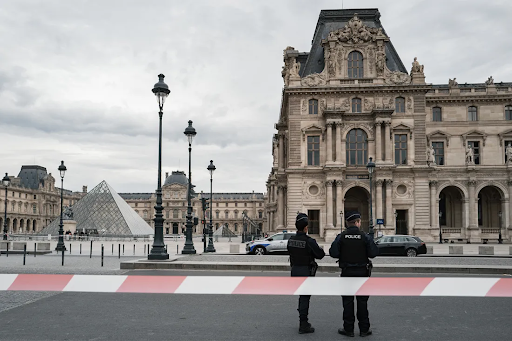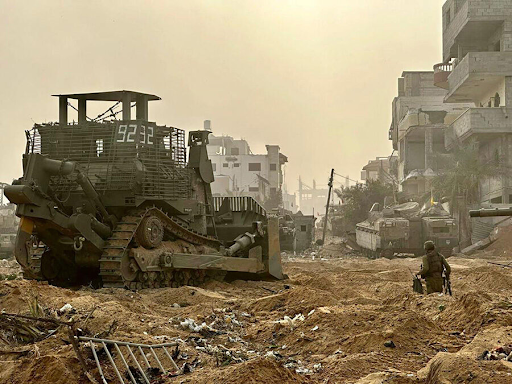Qatar, the Middle East, and Sportswashing
With many more Middle Eastern countries participating in global sporting events, the abuses of these states are coming into focus.

Qatar hosting the World Cup brings to light the issues with its regime.
December 15, 2022
The 2022 Qatar World Cup has certainly been electric; with Qatar being the first Islamic country to host the games and the debut of the Qatari team on the world stage, this tournament is certainly one for the history books. But underneath all the hype and excitement is a seedy web of corruption, deceit, and human rights abuses. Unfortunately, this is a trend many can find in sporting events all over the region.
When Qatar was picked to host a World Cup in 2010, many suspected that there was more going on than met the eye. NPR reports that many officials involved with the decision were allegedly bribed to vote for Qatar over many other, more viable, candidates. Other concerns include the many human rights abuses committed in Qatar, including their criminalization of homosexuality, accusations of greenwashing and sportswashing, which are the acts of using climate activism or sports, respectively, to draw attention from major transgressions, and the treatment of migrate works to develop the country, especially its World Cup infrastructure. The Guardian explains that 6,500 migrant workers have died since the soccer decision was announced in 2010, although The Guardian also states that the death toll is most likely much higher. In addition, the New York Post also reported that the condition of these migrant workers is atrocious and “bordered on modern slavery,” with some of these people forcibly sent from their countries to work on the massive megastructures and roads.
However, Qatar isn’t the only country facing these charges. When Formula One prepared to debut its Jeddah Grand Prix, the organization came under heavy fire for supporting Saudi Arabia in spite of their history with human rights. Like Qatar, Saudi Arabia has criminalized homosexuality, in addition to a crack down on dissenting media, unjustly arresting human rights advocates, and spying on its citizens, as explained by Amnesty International. The controversy only intensified the following year when, a day before the Jeddah Grand Prix, Houthi rebels from Yemen, whom Saudi Arabia has been fighting a deadly aerial campaign against, attacked a Saudi oil plant. The Saudi government assured the drivers that they would be safe. AP News reported that “hours after Formula One drivers voiced concerns about a race already dogged by human rights issues, Saudi Arabia’s war with Yemen landed on F1′s doorstep when Houthi rebels attacked an oil depot near the gleaming Saudi track where they were racing.”
With all the accusations of sportswashing and human rights violations, it can be hard to view the 2022 World Cup with optimism. Instead of focusing on the negatives, though, players and fans alike should put their best foot forward. The world isn’t perfect, and never will be. When there are people willing to stand up to evil and treat all with kindness, the world has hope.









Amanda • Jan 11, 2023 at 9:10 am
Very well written love it